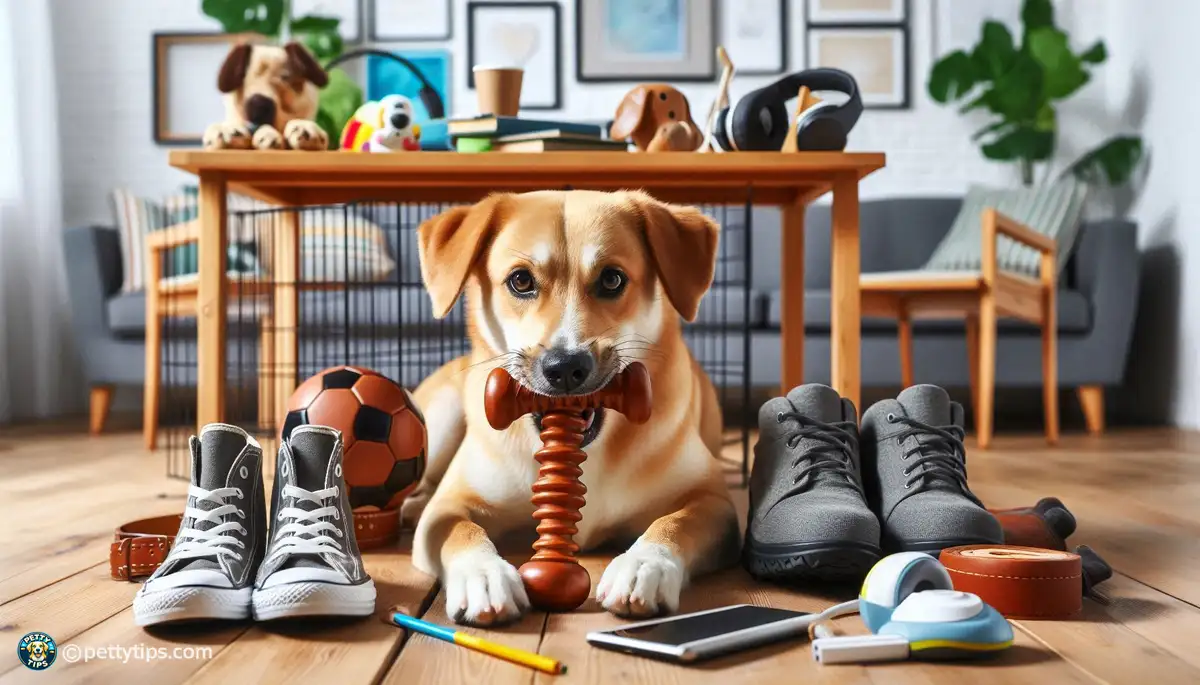- Home
- Pet Health and Wellness
- Preventing Destructive Chewing Behaviors in Pets
Preventing Destructive Chewing Behaviors in Pets

Exploring the Instinctual Nature of Chewing
Chewing is a natural behavior for pets, deeply rooted in their instincts. Whether it's a dog gnawing on a bone or a cat sharpening her claws on furniture, chewing serves several purposes beyond just satisfying their oral fixation. Pets may chew to alleviate boredom, relieve anxiety, or even maintain dental health. Understanding the underlying reasons behind your pet's chewing habits is crucial in addressing and preventing destructive behavior.
Identifying Behavioral Triggers
destructive chewing can also be triggered by various environmental factors. Changes in routine, separation anxiety, or lack of mental stimulation can all contribute to your pet's desire to chew on inappropriate items. Additionally, certain medical conditions or nutritional deficiencies may manifest through increased chewing behavior. By identifying these triggers, pet owners can take proactive measures to prevent destructive chewing before it becomes a persistent issue.
Providing Proper Mental and Physical Stimulation
Enriching the Environment
A lack of mental stimulation is often a leading cause of destructive chewing in pets. To prevent boredom-induced chewing, it's essential to provide an enriched environment that engages your pet's mind and body. interactive toys, puzzle feeders, and regular play sessions can help keep your pet mentally stimulated and reduce the likelihood of destructive behavior.
Incorporating Regular Exercise
In addition to mental stimulation, pets also require adequate physical exercise to stay healthy and content. Regular walks, playtime, and outdoor activities are essential for burning off excess energy and preventing boredom-related chewing. Engaging in interactive games like fetch or agility training not only strengthens your bond with your pet but also provides them with an outlet for their natural instincts.
Establishing Clear Boundaries and Training Techniques
Consistent Training Methods
Consistency is key when it comes to training your pet to avoid destructive chewing behaviors. Establish clear boundaries from the beginning and consistently reinforce them through positive reinforcement techniques. Rewarding good behavior with treats, praise, or toys encourages your pet to make positive associations and reinforces desirable chewing habits.
Redirecting Attention
When you catch your pet in the act of chewing on inappropriate items, it's important to redirect their attention to more suitable alternatives. Offering a designated chewing toy or bone can help satisfy their natural urge to chew while steering them away from destructive habits. Additionally, using deterrents like bitter-tasting sprays or noise distractions can help discourage chewing on forbidden objects.
Creating a Safe Environment
Removing Tempting Objects
One of the most effective ways to prevent destructive chewing is by removing temptation from your pet's environment. Keep valuable or hazardous items out of reach, and consider using baby gates or pet-proofing products to restrict access to certain areas of your home. By eliminating opportunities for your pet to engage in destructive chewing, you can effectively minimize the risk of damage to your belongings.
Providing Safe Chew Toys
Offering a variety of safe and durable chew toys is essential for redirecting your pet's chewing behavior onto appropriate items. Opt for toys made from sturdy materials like rubber or nylon that are specifically designed for chewing. Avoid toys that are easily destructible or small enough to be swallowed, as these can pose a choking hazard or cause intestinal blockages.
Addressing Underlying Medical Issues
Consulting with a Veterinarian
If your pet's chewing behavior persists despite your best efforts, it's crucial to consult with a veterinarian to rule out any underlying medical issues. dental problems, gastrointestinal issues, or anxiety disorders could be contributing to your pet's destructive chewing habits. A thorough examination and diagnostic testing can help identify any health concerns and determine the appropriate course of treatment.
Implementing Behavioral Therapy
In some cases, addressing destructive chewing may require the assistance of a professional animal behaviorist. behavioral therapy techniques, such as desensitization or counterconditioning, can help modify your pet's response to certain triggers and reduce their inclination to chew on inappropriate objects. Working with a qualified expert can provide valuable insights and personalized strategies for managing your pet's behavior effectively.
Remaining Patient and Persistent
Understanding the Process Takes Time
Preventing destructive chewing behaviors in pets is a gradual process that requires patience and persistence. It's important to recognize that changes won't happen overnight and to remain consistent in your training efforts. Celebrate small victories along the way and stay committed to providing a supportive environment for your pet's behavioral development.
Seeking Support and Guidance
If you're feeling overwhelmed or unsure how to address your pet's chewing issues, don't hesitate to seek support from fellow pet owners, trainers, or online communities. Sharing experiences and learning from others can offer valuable insights and encouragement as you navigate the challenges of pet ownership. Remember, you're not alone, and with time and dedication, you can help your pet overcome destructive chewing behaviors and lead a happier, healthier life.
